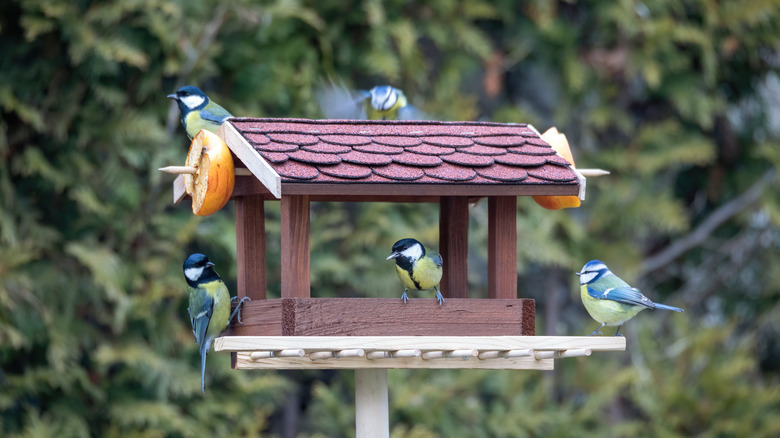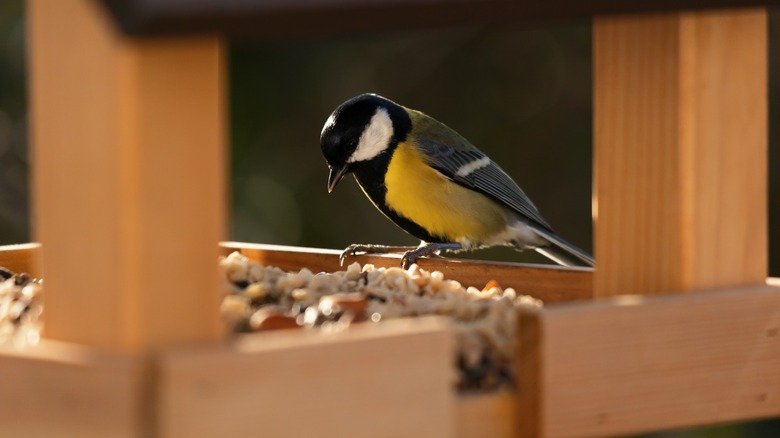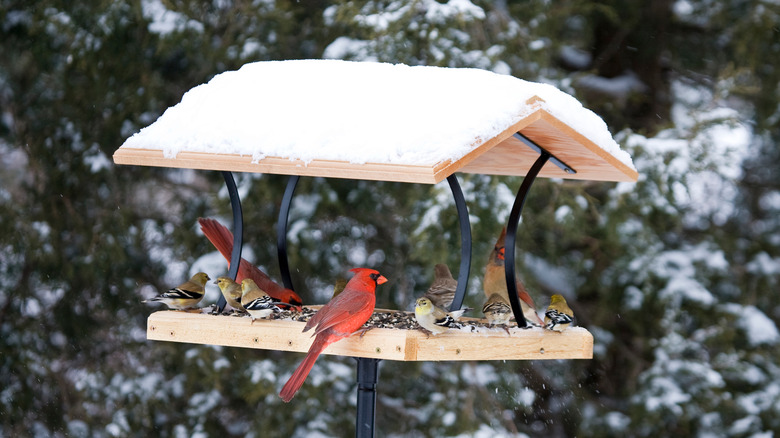Adding This Sweet Ingredient To Your Bird Feeder Can Cause Major Problems
Adding a bird feeder to your yard can be an easy way to attract more feathered friends for viewing while keeping them healthy and well-fed. You can even DIY a suet block for your cage feeder containing all kinds of goodies to keep hungry birds satiated during the winter months. At other times of the year, platform, hopper, and tube feeders holding birdseed will do the trick. When mixing up a seed blend or making your own suet, you might be tempted to give the birds a little cocoa-based treat. After all, what could a little yumminess in the form of chocolate hurt? As it turns out, chocolate can be deadly when eaten by birds.
Most pet lovers know to keep chocolate away from dogs, and that sage advice extends to both pet birds and wild ones. The toxic culprit in chocolate is called theobromine. While humans can digest it without a problem, many other mammals can't. If birds ingest chocolate, even a smidgen, they could develop symptoms ranging from vomiting and diarrhea to rapid heart rate and seizures leading to death. Chocolate isn't the only thing on the bad list when it comes to bird feeder treats either.
Other sweet treats to leave out of your bird feeder
Now that you know to avoid adding anything chocolate to your bird feeder, there are a few other things on the sweet side to avoid. Among those are apple and pear seeds and fruit pits like those found in plums, peaches, and cherries. If you want to add a little fruit to your bird feeder, be sure to remove these first since they contain a trace amount of cyanide. Humans would have to consume many apple or pear seeds to feel ill effects, but birds can be harmed by consuming a very small quantity.
Another thing to keep out of your bird feeder is xylitol. This is an artificial sweetener found in many sugar-free foods made for human consumption, but it can be very toxic to dogs and birds. In fact, homemade nectar containing xylitol appears to have caused acute hypoglycemia (low blood sugar) in 29 wild Cape sugarbirds resulting in death, according to the Journal of Avian Medicine and Surgery. You'll definitely want to steer clear of this artificial sweetener when it comes to feeding all types of birds.
What to add to your bird feeder instead
If you still want to add a little something sweet to a suet cake to feed your feathered visitors, the University of Nebraska Extension suggests adding a little brown sugar, syrup, or honey when you're making suet balls or blocks to fill a cage feeder. Never add these to your hummingbird feeder, however; stick with a tried-and-true basic hummingbird nectar recipe that includes only one ¼ cup of pure white granulated sugar dissolved into 1 cup of spring water.
You can also add a handful of dried fruits like cranberries, currants, raisins, or cherries into a suet mixture as a sweet treat for wild birds. If you want to serve dried fruits a la carte, soak them in water overnight and place them on a platform or table feeder to attract species that don't eat birdseed like mockingbirds and robins. Just be sure to avoid chocolate-coated fruits (or anything else chocolate!) to keep the birds frequenting your yard happy and healthy.


